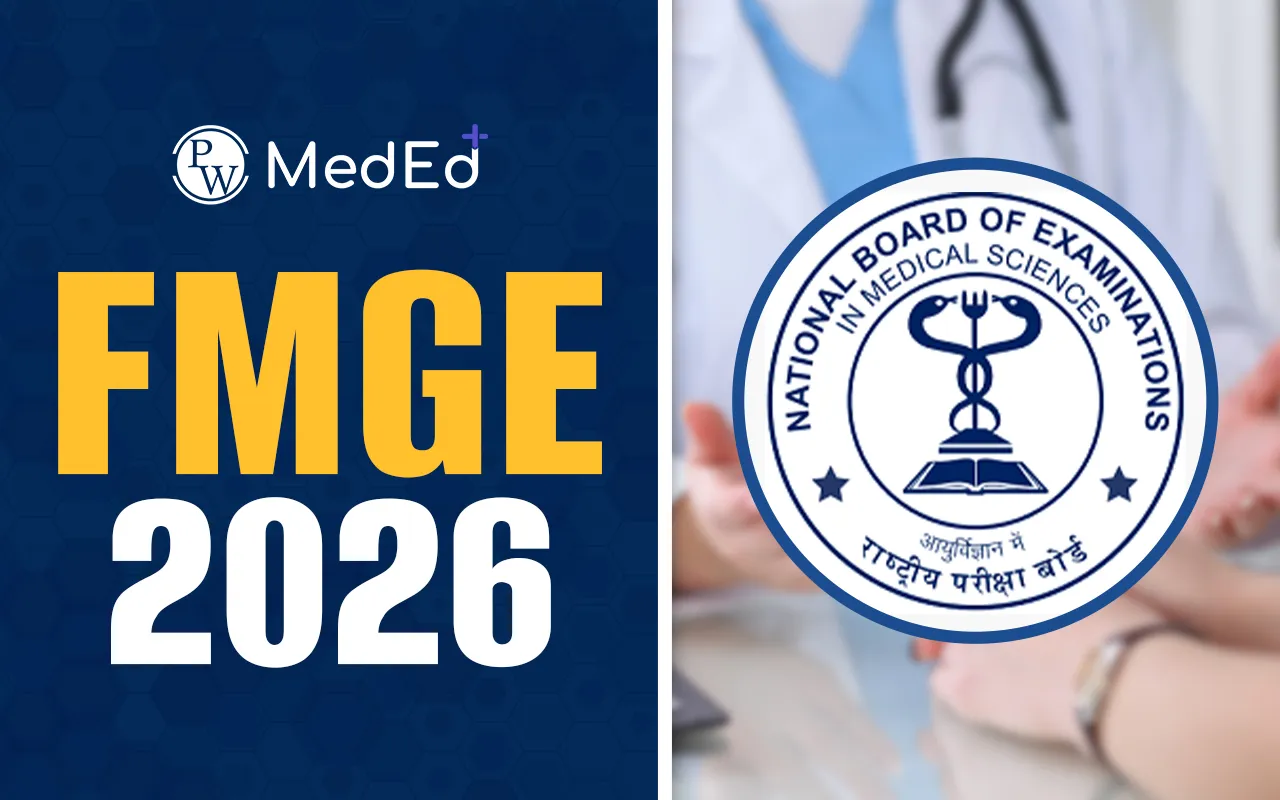
Physiology is an important subject in the MBBS course and is asked in the MBBS First Prof, FMGE, and NEET PG exams. Students have to study Physiology in their first year of the MBBS course. Physiology is taught in the Pre-clinical phase of medicine to explain to students about the functioning of organ systems of the body.
Cell physiology, Environmental physiology, Evolutionary physiology, etc. are some important branches of Physiology. Read on for a brief introduction to Physiology for the MBBS course.
Physiology Introduction
Physiology is a sub-section in the biology field that studies normal function within living things. This subject covers a range of topics from the basis of cell function at the molecular level to the integrated behavior of organs of the body. Physiology also studies the influence of the external environment on organs, anatomy, cells, and biological compounds.
Physiology is an essential part of medicine to understand how the body functions in health and how components of the body interact to keep us alive in everyday challenges of life. In short, physiology is the study of functions and processes responsible for creating life.
According to Merriam-Webster, “Physiology is a branch of biology that deals with the functions and activities of life or living matter such as organs, tissues, or cells and of the physical and chemical phenomena involved.”
History of Physiology
The Origin of Physiology can be traced back to around 420 BC with its roots in ancient India and Egypt. Hippocrates who is famously known as the father of medicine coined the theory of the four humors. This was later modified by Claudius Galenus, the founder of Experimental physiology.
However, the term ‘Physiology’ was first introduced by Jean Fernel (1497-1558). He was a famous French physician who was the first to describe the spinal canal. Physiology in Greek means ‘study of nature, origins’, and this field later evolved with the contribution of several great researchers. A transformative shift in physiology occurred with the cell theory of Matthias Schleiden and Theodor Schwann in 1830.
After this, there was quick progress in the domain of physiology to catch up with the latest advancements in medicine.
Physiology Biological System
Physiology in MBBS mainly studies human physiology and related concepts. It covers several biological systems of the human body that are essential for the related diagnosis and management of disease. Some of the major biological systems covered in physiology are as follows:
- Cardiovascular system: Also known as the Circulatory system, it is made up of the heart and blood vessels. Students learn about the function of the circulatory system like pumping blood around the body and how it works in sickness.
- Digestive or Excretory system : Medical students study related systems like the spleen, liver, and pancreas, the journey of food from mouth to final exit from the body.
- Endocrine system: Students learn about endocrine hormones, organs releasing endocrine hormones, and the related impact of endocrine glands.
- Immune system: Students study the natural defense mechanism and its parts, the white blood cells, thymus, and lymph systems.
- Integumentary system: This biological system consists of the skin, nails, hair, sweat glands, and sebaceous glands.
- Musculoskeletal system: One of the major topics in this biological system is Bone marrow and students study about skeleton, muscles, ligaments, tendons, and cartilage.
- Nervous system: The Central Nervous System (CNS) which consists of the brain and spinal cord and the Peripheral Nervous System (PNS) is the focus area.
- Renal or Urinary system : This biological system includes the study of the kidneys, bladder, ureters, and urethra.
- Reproductive system : Students preliminary learn about reproductive organs and investigate the way the fetus is created and nurtured in the human body.
- Respiratory system : This biological system consists of the nose, trachea, nasopharynx, and lung organs which are responsible for bringing in oxygen.
Physiology Branches
Physiology is a vast biological field and encompasses several sub-disciplines. Researchers have divided physiology are per expertise area into smaller branches. In MBBS majorly 10 biological systems are studied along with environmental physiology. Here are three major branches of physiology:
- General Physiology : This branch covers most human biological system and their workings. Students learn about fundamental concepts of physiology, control systems, homeostasis, and other related topics in General Physiology.
- Environmental Physiology: In this branch of physiology students mainly study how organisms adapt to their environments. Major topics like thermoregulation and osmoregulation are covered in this branch of physiology to help students understand organs' coping mechanisms.
- Neurophysiology: The major focus of neurophysiology is on the nervous system of humans. Important concepts like sensation, movement, memory, and emotions are students in this branch of physiology that study CNS and the peripheral nervous system.
Physiology and Biochemistry
Physiology and Biochemistry are two intertwined and closely related fields in medicine. Students study these subjects in their first year of MBBS in the pre-clinical phase. Both subjects together help students in understanding the living organism. Biochemistry deals with chemical processes that occur within living organisms and physiology studies the functioning of living organisms.
Biochemistry leads to a foundation for understanding the molecular basis of all physiological processes. The basic difference between the two fields is that physiology details normal body parts functioning and biochemistry investigates chemical and physicochemical processes.
Physiology and Biochemistry Syllabus
Students must know the syllabus of Physiology and Biochemistry as these subjects are important parts of the MBBS First Prof, NEET PG, FMGE, and INI CET exams. Students have to study both subjects in detail to understand the core concepts of the pre-clinical phase. A clear understanding of the Physiology and Biochemistry syllabus will help students prepare to get high scores in medical exams.
Physiology Syllabus - In physiology, students study the following topics in detail:
- General Physiology
- Respiratory System
- Gastrointestinal System
- Nutrition
- Kidney
- Nerve–Muscle
- Neurophysiology
- Blood
- Environmental Physiology
- Cardiovascular System
Biochemistry - This subject covers topics like molecular biology and enzymes. Major topics are listed below:
- Molecular Biology
- Biological cells
- Hormones
- Metabolic pathways
- Enzymes
- Cancer and cancer makers
- Biomolecules
- Food assimilation and nutrition.
Physiology Importance in MBBS
Physiology is one of the most crucial subjects for medical students pursuing an MBBS degree. This subject provides a comprehensive knowledge of the functioning of major biological systems of humans. The field of physiology is extensive as it covers everything from the basis of cell function to the integrated behavior of all body parts.
Here are some of the reasons why physiology is an important subject in MBBS:
- Understanding Human Body: Physiology studies the functions of living organisms from tiny cells to the whole body. It is important to understand the influence of the external environment and our body's response to the same. For medical students, this subject is essential for understanding how diseases affect the body to treat them.
- Importance of Body Fluids: The knowledge of physiology helps in understanding the importance of body fluids like blood and interstitial fluid. Students study the composition of major fluids and how they are regulated to diagnose and treat diseases such as edema, dehydration, and electrolyte imbalances.
- Mechanisms of Disease: In physiology, students develop a foundation for understanding the mechanisms of various diseases. With a clear understanding of this subject students can identify the body changes that occur in a particular disease to evaluate the mechanism of disease for treatment.
- Learn Effects of Drugs : Physiology is essential for understanding the effects of various drugs on the body. With the knowledge of how drugs interact with the different biological body systems, an effective treatment plan can be developed avoiding harmful side effects.
- Essential to Clear Exams : Physiology forms a major part of the syllabus of the first MBBS Professional exam and other medical exams like NEET PG, INI CET, and FMGE. Many times it has significant weightage in top medical exams.
If you want to learn about Physiology in detail to score higher in the MBBS and NEET PG exams, download the Med Ed app now!
| NEET PG Important Links | |
|---|---|
| NEET PG 2024 | NEET PG Syllabus 2024 |
| NEET PG Exam Pattern 2024 | NEET PG Reservation |
Physiology FAQs
What is Physiology?
Who introduced the term Physiology?
What are some major branches of Physiology?
Why do students need to study Physiology?








